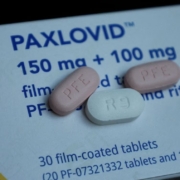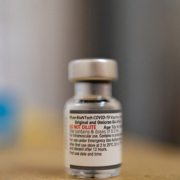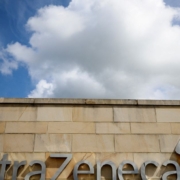Biopharma Report 2022: Brand values surge
Novel drug approvals during 2022
The FDA’s Center for Drug Evaluation and Research (CDER) during the first five months of 2022 approved 15 new molecular entities and new therapeutic biological products, including innovative products that never have been used in clinical practice. During January–May 2022, FDA’s Center for Biologics Evaluation and Research (CBER) approved two Biologics License Applications (BLAs). The following section highlights some of the first-in-class NDAs granted clearance by CDER in the first five months of 2022.
First topical novel chemical entity launched for psoriasis in U.S. in 25 years
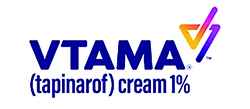 Biopharmaceutical company Dermavant Sciences received marketing approval on May 23 from the Food and Drug Administration for Vtama (tapinarof) cream, 1%. The aryl hydrocarbon receptor agonist is indicated for the topical treatment of plaque psoriasis in adults. Vtama cream represents the first FDA-approved steroid-free topical medication in its class.
Biopharmaceutical company Dermavant Sciences received marketing approval on May 23 from the Food and Drug Administration for Vtama (tapinarof) cream, 1%. The aryl hydrocarbon receptor agonist is indicated for the topical treatment of plaque psoriasis in adults. Vtama cream represents the first FDA-approved steroid-free topical medication in its class.
CEO Todd Zavodnick says, “At Dermavant, we are committed to advancing novel, patient-focused innovation in immuno-dermatology. As such, we are proud to have developed a topical treatment in Vtama cream that provides not only efficacy over 52 weeks but can also be used on all body areas, including on sensitive locations, such as face, skin folds, neck, genitalia, anal crux, inflammatory areas, and axillae. In addition, a four-month off-treatment remittive effect (median time to first worsening), leads us to believe that Vtama cream has the potential to become the preferred topical option for this chronically underserved patient population and among the physicians who treat them.”
In the pivotal Phase III study program, Vtama cream met all primary and secondary endpoints and showed highly statistically significant improvement versus vehicle in Physician Global Assessment (PGA) score with 36 percent of patients versus 6 percent in vehicle in PSOARING 1 and 40 percent of patients compared to 6 percent in vehicle in PSOARING 2 achieving clear or almost clear with a minimum 2-grade improvement at week 12 (p<0.0001 for both trials).
In anticipation of the FDA approval, Dermavant had a fully built commercial infrastructure in place, with product in the channel during the first week of June.
First GIP and GLP-1 receptor agonist for treatment of adults with type 2 diabetes
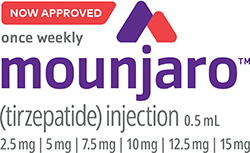 The FDA on May 13 approved Lilly ’s Mounjaro (tirzepatide) injection as a once-weekly GIP (glucose-dependent insulinotropic polypeptide) and GLP-1 (glucagon-like peptide-1) receptor agonist indicated as an adjunct to diet and exercise to improve glycemic control in adults with type 2 diabetes. As the only FDA-approved GIP and GLP-1 receptor agonist, the single molecule activates the body’s receptors for GIP and GLP-1, which are natural incretin hormones.
The FDA on May 13 approved Lilly ’s Mounjaro (tirzepatide) injection as a once-weekly GIP (glucose-dependent insulinotropic polypeptide) and GLP-1 (glucagon-like peptide-1) receptor agonist indicated as an adjunct to diet and exercise to improve glycemic control in adults with type 2 diabetes. As the only FDA-approved GIP and GLP-1 receptor agonist, the single molecule activates the body’s receptors for GIP and GLP-1, which are natural incretin hormones.
Mounjaro is made available in six doses (2.5 mg, 5 mg, 7.5 mg, 10 mg, 12.5 mg, 15 mg) and comes in Lilly’s well-established auto-injector pen with a pre-attached, hidden needle that patients do not need to handle or see.
In the Phase 3 SURPASS clinical studies, Mounjaro delivered superior A1C reductions versus all comparators. While not indicated for weight loss, the medication led to significantly greater weight reductions versus comparators in a key secondary endpoint
“Lilly has a nearly 100-year heritage of advancing care for people living with diabetes – never settling for current outcomes. We’re not satisfied knowing that half of the more than 30 million Americans living with type 2 diabetes are not reaching their target blood glucose levels,” said Lilly Diabetes President Mike Mason. “We’re thrilled to introduce Mounjaro, representing the first new class of type 2 diabetes medication introduced in almost a decade and embodies our mission to bring innovative new therapies to the diabetes community.”
First innovative acid suppressant from a new drug class approved in U.S. in over 30 years
 Voquezna Triple Pak (vonoprazan tablets, amoxicillin capsules, clarithromycin tablets) and Voquezna Dual Pak (vonoprazan tablets, amoxicillin capsules) received marketing clearance on May 3 for treating Helicobacter pylori infection in adults. Voquezna treatment regimens are composed of antibiotics conveniently packaged with vonoprazan, a novel potassium-competitive acid blocker and the first innovative acid suppressant from a new drug class approved in the U.S. in more than 30 years.
Voquezna Triple Pak (vonoprazan tablets, amoxicillin capsules, clarithromycin tablets) and Voquezna Dual Pak (vonoprazan tablets, amoxicillin capsules) received marketing clearance on May 3 for treating Helicobacter pylori infection in adults. Voquezna treatment regimens are composed of antibiotics conveniently packaged with vonoprazan, a novel potassium-competitive acid blocker and the first innovative acid suppressant from a new drug class approved in the U.S. in more than 30 years.
The NDAs for these products were granted Priority Review designation by the U.S. regulatory agency and previously granted as qualified infectious disease products. The NDAs were submitted by Phathom Pharmaceuticals, a biopharmaceutical company focused on developing and commercializing novel treatments for gastrointestinal diseases.
Voquezna Triple and Dual Paks showed superior eradication rates compared to lansoprazole-based triple therapy in the overall patient population of the pivotal Phase III study. They offer physicians the flexibility of two different treatment options, including a regimen without clarithromycin. U.S. commercial launch is anticipated during the third quarter of 2022.
“The approval of Voquezna treatment regimens offers physicians and patients two therapeutic options that showed superior eradication rates compared to proton pump inhibitor-based (PPI) lansoprazole triple therapy in the overall patient population in a pivotal trial,” noted Phathom President and CEO Terrie Curran. “H. pylori eradication rates continue to decline in part due to antibiotic resistance, inadequate acid suppression, and complex treatment regimens, resulting in treatment failures and complications for patients. New therapies that have the potential to address the limitations of current treatments are needed and we look forward to bringing these innovative vonoprazan-based treatment options to the millions of H. pylori sufferers in the U.S.”
First FDA-approved cardiac myosin inhibitor that specifically targets source of obstructive HCM
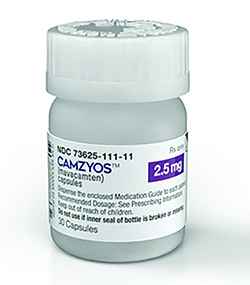 Camzyos (mavacamten, 2.5 mg, 5 mg, 10 mg, 15 mg capsules) was the recipient of FDA approval on April 28 for the treatment of adults with symptomatic New York Heart Association (NYHA) class II-III obstructive hypertrophic cardiomyopathy (obstructive HCM) to improve functional capacity and symptoms. Bristol Myers Squibb’s Camzyos represents the only FDA-approved allosteric and reversible inhibitor selective for cardiac myosin that targets the underlying pathophysiology of obstructive HCM.
Camzyos (mavacamten, 2.5 mg, 5 mg, 10 mg, 15 mg capsules) was the recipient of FDA approval on April 28 for the treatment of adults with symptomatic New York Heart Association (NYHA) class II-III obstructive hypertrophic cardiomyopathy (obstructive HCM) to improve functional capacity and symptoms. Bristol Myers Squibb’s Camzyos represents the only FDA-approved allosteric and reversible inhibitor selective for cardiac myosin that targets the underlying pathophysiology of obstructive HCM.
The marketing clearance was based on the groundbreaking Phase 3 EXPLORER-HCM study demonstrating benefit in patients receiving Camzyos versus placebo. The medicine modulates the amount of myosin heads that can enter “on actin” (power-generating) states, thus reducing the probability of force-producing (systolic) and residual (diastolic) cross-bridge formation. Research shows excess myosin actin cross-bridge formation and dysregulation of the super-relaxed state are mechanistic hallmarks of HCM. The drug shifts the overall myosin population towards an energy-sparing, recruitable, super-relaxed state. In patients with HCM, myosin inhibition with Camzyos reduces dynamic LVOT obstruction and improves cardiac filling pressures.
“This is a first-in-class medicine specifically for patients living with symptomatic obstructive HCM,” stated Milind Desai, M.D., MBA, director of the Hypertrophic Cardiomyopathy Center and director of clinical operations in Cleveland Clinic’s Heart Vascular & Thoracic Institute. “With this FDA approval, U.S. cardiologists now have a new pharmacological option for eligible patients that targets the underlying pathophysiology of the disease.”
First FDA-approved medication for recurrent vulvovaginal candidiasis (chronic yeast infection)
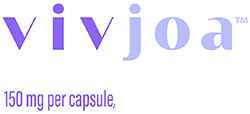 The azole antifungal Vivjoa received FDA clearance on April 26 to reduce the incidence of recurrent vulvovaginal candidiasis (RVVC) in females with a history of RVVC who are not of reproductive potential. Vivjoa is the only FDA-
The azole antifungal Vivjoa received FDA clearance on April 26 to reduce the incidence of recurrent vulvovaginal candidiasis (RVVC) in females with a history of RVVC who are not of reproductive potential. Vivjoa is the only FDA-
approved medication for this condition and provides sustained efficacy demonstrated by significant long-term reduction of RVVC recurrence through 50 weeks versus comparators. Vivjoa represents the first FDA-approved medicine for Mycovia Pharmaceuticals, an emerging biopharmaceutical company dedicated to recognizing and empowering those living with unmet medical needs by developing novel therapies.
The U.S. approval marks a significant therapeutic advancement for reducing the incidence of RVVC, a condition with substantial unmet need, in permanently infertile and postmenopausal women. The marketing clearance is based upon the positive results from three Phase 3 studies of oteseconazole – two global, pivotal VIOLET trials and one U.S.-focused ultraVIOLET study, including 875 patients at 232 sites across 11 countries. U.S. commercial launch of Vivjoa was expected during Q2 2022.
Oteseconazole is designed to inhibit fungal CYP51, which is necessary for fungal cell wall integrity, and this selective interaction is additionally toxic to fungi, resulting in the inhibition of fungal growth. Due to the drug’s chemical structure, oteseconazole has a lower affinity for human CYP enzymes as compared to fungal CYP enzymes. The U.S. regulatory agency granted oteseconazole Qualified Infectious Disease Product and Fast Track designations.
According to Mycovia Pharmaceuticals CEO and NovaQuest Capital Management Partner Patrick Jordan, “We celebrate this important milestone for Mycovia, as Vivjoa is the first antifungal in our pipeline to obtain FDA approval and achieves our goal to fulfill a previously unmet medical need among women suffering from RVVC. We are honored to lead this advancement in women’s health.”
First targeted radioligand therapy for treatment of progressive, PSMA positive metastatic castration-resistant prostate cancer
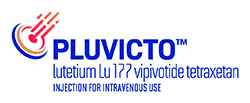 The Novartis medicine Pluvicto (lutetium Lu 177 vipivotide tetraxetan) (formerly referred to as 177Lu-PSMA-617) was cleared for approval on March 23 for treating adults with a certain type of advanced cancer called prostate-specific membrane antigen-positive metastatic castration-resistant prostate cancer (PSMA-positive mCRPC) that has spread to other parts of the body. These patients have previously been treated with other anticancer treatments (androgen receptor pathway inhibition and taxane-based chemotherapy).
The Novartis medicine Pluvicto (lutetium Lu 177 vipivotide tetraxetan) (formerly referred to as 177Lu-PSMA-617) was cleared for approval on March 23 for treating adults with a certain type of advanced cancer called prostate-specific membrane antigen-positive metastatic castration-resistant prostate cancer (PSMA-positive mCRPC) that has spread to other parts of the body. These patients have previously been treated with other anticancer treatments (androgen receptor pathway inhibition and taxane-based chemotherapy).
Pluvicto represents the first FDA-approved targeted radioligand therapy (RLT) for eligible patients with mCRPC that combines a targeting compound (ligand) with a therapeutic radioisotope (a radioactive particle). The U.S. marketing approval is based on the results of the Phase III VISION study, which showed that PSMA-positive mCRPC patients previously treated with androgen receptor (AR) pathway inhibition and taxane-based chemotherapy who received Pluvicto plus standard of care (SOC) had improved overall survival versus SOC alone.
The FDA additionally approved Locametz (kit for the preparation of gallium Ga 68 gozetotide injection). After radiolabeling, this imaging agent may be used to identify PSMA-positive lesions in adults with mCRPC through a positron emission tomography (PET) scan. Gallium-68 labeled Locametz can identify tumor lesions expressing the PSMA biomarker and locate where tumors may have spread (eg, in soft tissue, lymph nodes, or bone), identifying patients eligible for targeted treatment with Pluvicto. PSMA is highly expressed in more than 80 percent of patients with prostate cancer, representing an important phenotypic biomarker for assessing the progression of metastatic prostate cancer.
“The approval of Pluvicto is an important clinical advancement for people with progressing mCRPC, as it can significantly improve survival rates for those who have limited treatment options,” stated Oliver Sartor, M.D., medical director at Tulane Cancer Center. “Pluvicto is a step forward in the evolution of precision medicine for prostate cancer.”
First LAG-3-blocking antibody combination
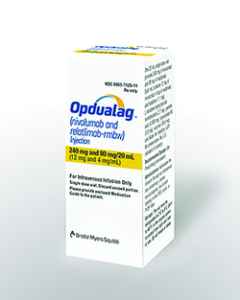 Bristol Myers Squib’s Opdualag (nivolumab and relatlimab-rmbw) was approved by the FDA on March 18 for the treatment of adult and pediatric patients 12 years of age or older with unresectable or metastatic melanoma. The first-in-class, fixed-dose combination of nivolumab and relatlimab is administered as a single intravenous infusion.
Bristol Myers Squib’s Opdualag (nivolumab and relatlimab-rmbw) was approved by the FDA on March 18 for the treatment of adult and pediatric patients 12 years of age or older with unresectable or metastatic melanoma. The first-in-class, fixed-dose combination of nivolumab and relatlimab is administered as a single intravenous infusion.
The approval is based on the Phase II/III RELATIVITY-047 study, which compared Opdualag (n=355) to nivolumab alone (n=359). In RELATIVITY-047, Opdualag more than doubled median progression-free survival versus nivolumab monotherapy, an established standard of care.
Relatlimab marks the third immune checkpoint inhibitor from Bristol Myers Squibb, adding to the company’s growing and differentiated oncology portfolio. The application was cleared under the FDA’s Real-Time Oncology Review pilot program, which aims to ensure that safe and effective treatments are available to patients as early as possible. The review was conducted under the FDA’s Project Orbis initiative, which enabled concurrent review by health authorities in Australia, Brazil and Switzerland.
“Since the approval of the first immune checkpoint inhibitor more than 10 years ago, we’ve seen immunotherapy, alone and in combination, revolutionize the treatment of patients with advanced melanoma,” stated F. Stephen Hodi, M.D., director of the Melanoma Center and the Center for Immuno-Oncology at Dana-Farber Cancer Institute. “The approval is particularly significant, as it introduces an entirely new combination of two immunotherapies that may act together to help improve anti-tumor response by targeting two different immune checkpoints — LAG-3 and PD-1.”
First FDA-approved treatment for seizures associated with CDKL5 deficiency disorder in patients 2 years of age and older
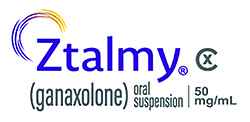 Ztalmy (ganaxolone) oral suspension was approved by FDA regulators on March 18 for the treatment of seizures associated with cyclin-dependent kinase-like 5 deficiency disorder (CDD), a rare form of genetic epilepsy, in patients 2 years of age and older. As the first the FDA-approved treatment specifically in CDD, Ztalmy is a neuroactive steroid that acts as a positive allosteric modulator of the GABAA receptor. Ztalmy significantly reduced major motor seizure frequency in CDD patients in the pivotal Phase III Marigold double-blind placebo-controlled study.
Ztalmy (ganaxolone) oral suspension was approved by FDA regulators on March 18 for the treatment of seizures associated with cyclin-dependent kinase-like 5 deficiency disorder (CDD), a rare form of genetic epilepsy, in patients 2 years of age and older. As the first the FDA-approved treatment specifically in CDD, Ztalmy is a neuroactive steroid that acts as a positive allosteric modulator of the GABAA receptor. Ztalmy significantly reduced major motor seizure frequency in CDD patients in the pivotal Phase III Marigold double-blind placebo-controlled study.
The drug was expected to be available through a designated specialty pharmacy in July 2022 following scheduling by the U.S. Drug Enforcement Administration.
To support the CDD community, Marinus Pharmaceuticals intended to introduce The Ztalmy One Program, a comprehensive patient services program to provide assistance with product access, ongoing support to patients, caregivers and their medical teams, and financial support to eligible patients.
U.S. regulators reviewed Ztalmy under Priority Review and granted the product Orphan Drug and Rare Pediatric Disease designations for the treatment of CDD. With the approval, the FDA awarded a Rare Pediatric Disease Priority Review Voucher, which Marinus planned to monetize.
“There has been a great unmet medical need for treatments that address seizures associated with CDKL5 deficiency disorder given their prominent role and profound impact on patients,” stated Scott Demarest, M.D., principal investigator (PI) for the Marigold trial and neurologist and clinical director of Precision Medicine at Children’s Hospital Colorado. “To date, antiseizure treatment decisions have been based on very limited clinical evidence in this patient population and the resulting outcomes underscore the need for therapies that further improve seizure control. Thanks to our research and this trial, we now have the first treatment specifically approved for seizures associated with CDKL5 deficiency disorder that was shown to have a positive benefit-risk profile.”
First approved therapy to specifically address needs of adult cytopenic myelofibrosis patients
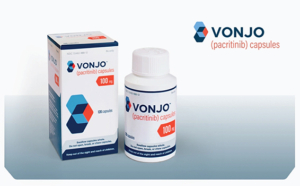 Vonjo (pacritinib) was cleared for marketing on February 28 for treating adults with intermediate or high-risk primary or secondary (post-polycythemia vera or post-essential thrombocythemia) myelofibrosis with a platelet count below 50 × 109/L. CTI BioPharma’s Vonjo is the first approved therapy that specifically addresses the needs of patients with cytopenic myelofibrosis.
Vonjo (pacritinib) was cleared for marketing on February 28 for treating adults with intermediate or high-risk primary or secondary (post-polycythemia vera or post-essential thrombocythemia) myelofibrosis with a platelet count below 50 × 109/L. CTI BioPharma’s Vonjo is the first approved therapy that specifically addresses the needs of patients with cytopenic myelofibrosis.
The recommended dosage is 200 mg orally twice daily. FDA accelerated approval was based on spleen volume reduction and efficacy results from the pivotal Phase III PERSIST-2 trial in patients with myelofibrosis (platelet counts less than or equal to 100 × 109/L).
Vonjo is a novel oral kinase inhibitor with specificity for Janus Associated Kinase 2 (JAK2) and IRAK1, without inhibiting JAK1. Pacritinib has activity against wild type JAK2, mutant JAK2V617F form and FMS-like tyrosine kinase 3 (FLT3), which contribute to signaling of a number of cytokines and growth factors that are important for hematopoiesis and immune function. Myelofibrosis is often associated with dysregulated signaling of JAK2. Pacritinib has higher inhibitory activity for JAK2 compared to other family members, JAK3 and TYK2. Pacritinib does not inhibit JAK1 at clinically relevant concentrations. The drug exhibits inhibitory activity against additional cellular kinases (such as CSF1R and IRAK1), the clinical relevance of which is unknown.
“Today’s approval of Vonjo establishes a new standard of care for myelofibrosis patients suffering from cytopenic myelofibrosis,” stated John Mascarenhas, M.D., associate professor, medicine, hematology and medical oncology, Tisch Cancer Institute, Icahn School of Medicine at Mount Sinai, New York. “Myelofibrosis with severe thrombocytopenia, defined as blood platelet counts below 50 × 109/L, has been shown to result in poor survival outcomes coupled with debilitating symptoms. Limited treatment options have rendered this disease as an area of urgent unmet medical need.”
First disease-modifying therapy for hemolytic anemia in adults with pyruvate kinase deficiency
 Pyrukynd (mitapivat) won marketing clearance on Feb. 17 for treating hemolytic anemia in adults with pyruvate kinase (PK) deficiency. The first-in-class, oral PK activator is the first approved disease-modifying therapy for the rare, debilitating, lifelong hemolytic anemia.
Pyrukynd (mitapivat) won marketing clearance on Feb. 17 for treating hemolytic anemia in adults with pyruvate kinase (PK) deficiency. The first-in-class, oral PK activator is the first approved disease-modifying therapy for the rare, debilitating, lifelong hemolytic anemia.
Pyrukynd was reviewed under FDA Priority Review and was previously granted Orphan Drug designation. The product is additionally under review by the European Medicines Agency (EMA) as a potential treatment for adults with PK deficiency, with Agios Pharmaceuticals expecting a regulatory decision in the EU by the end of 2022.
U.S. approval is based on results from two pivotal trials, ACTIVATE and ACTIVATE-T, conducted in not regularly transfused and regularly transfused adults with PK deficiency, respectively.
“The successful ACTIVATE and ACTIVATE-T studies demonstrate the impact of mitapivat in significantly improving hemolysis and anemia in PK deficiency,” stated Hanny Al-Samkari, M.D., hematologist and clinical investigator at the Mass General Cancer Center and Harvard Medical School, and an investigator in these pivotal Phase III studies. “The FDA approval of mitapivat, a targeted agent and first disease-modifying medication in PK deficiency, is an encouraging step forward for these patients that addresses a significant unmet need.”
First treatment for use in patients with cold agglutinin disease
 The FDA approved Enjaymo (sutimlimab-jome) to decrease the need for red blood cell transfusion due to hemolysis in adults with cold agglutinin disease (CAD). Sanofi’s Enjaymo is the only approved treatment for people with CAD and works by inhibiting the destruction of red blood cells (hemolysis).
The FDA approved Enjaymo (sutimlimab-jome) to decrease the need for red blood cell transfusion due to hemolysis in adults with cold agglutinin disease (CAD). Sanofi’s Enjaymo is the only approved treatment for people with CAD and works by inhibiting the destruction of red blood cells (hemolysis).
Enjaymo is designed to selectively target and inhibit C1s in the classical complement pathway, which is part of the innate immune system. By blocking C1s, the humanized monoclonal antibody inhibits the activation of the complement cascade in the immune system and inhibits C1-activated hemolysis in CAD to prevent the abnormal destruction of healthy red blood cells. Research shows Enjaymo does not inhibit the lectin and alternative pathways.
The U.S. list price (wholesale acquisition cost) of Enjaymo is $1,800 per vial. Enjaymo is the recipient of FDA Breakthrough Therapy, Orphan Drug, and Priority Review designation. Outside of the United States, sutimlimab has been submitted to regulatory authorities in Europe and Japan.
“Until now, people living with cold agglutinin disease haven’t had an approved treatment option to manage the constant destruction of red blood cells. Without healthy, viable red blood cells, a chain reaction of debilitating signs and symptoms can be triggered, starting with severe anemia. Enjaymo is the only approved treatment to inhibit red blood cell destruction in CAD and help stop the chain reaction from the start,” stated Sanofi Executive Vice President, Head of Specialty Care Bill Sibold.
First bispecific antibody for eyes
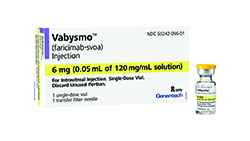 Roche Group member Genentech’s Vabysmo (faricimab-svoa) was approved by U.S. regulators on Jan. 28 for treating wet, or neovascular, age-related macular degeneration (AMD) and diabetic macular edema (DME), which are two leading causes of vision loss among U.S. adults. Vabysmo targets and inhibits two disease pathways linked to various vision-threatening retinal conditions by neutralizing angiopoietin-2 (Ang-2) and vascular endothelial growth factor-A (VEGF-A).
Roche Group member Genentech’s Vabysmo (faricimab-svoa) was approved by U.S. regulators on Jan. 28 for treating wet, or neovascular, age-related macular degeneration (AMD) and diabetic macular edema (DME), which are two leading causes of vision loss among U.S. adults. Vabysmo targets and inhibits two disease pathways linked to various vision-threatening retinal conditions by neutralizing angiopoietin-2 (Ang-2) and vascular endothelial growth factor-A (VEGF-A).
Vabysmo is the first and only FDA-approved injectable eye medication for wet AMD and DME that improves and maintains vision with treatments from one to four months apart in the first year after four initial monthly doses, based on evaluation of the patient’s anatomy and vision outcomes.
The standard of care for wet AMD and DME typically necessitates eye injections every one to two months.
“Vabysmo represents an important step forward for ophthalmology. Vabysmo is the first bispecific antibody approved for the eye and a major advance in treating retinal conditions such as wet AMD and diabetic macular edema,” stated Charles Wykoff, M.D., Ph.D., director of research at Retina Consultants of Texas in Houston and a Vabysmo Phase III investigator. “With Vabysmo, we now have the opportunity to offer patients a medicine that could improve their vision, potentially lowering treatment burden with fewer injections over time.”
The U.S. marketing approval is based on positive results across four Phase III clinical trials conducted in patients with wet AMD and DME. Vabysmo is designed to block pathways involving Ang-2 and VEGF-A. Ang-2 and VEGF-A are believed to contribute to vision loss by destabilizing blood vessels, which may cause new leaky blood vessels to form and increase inflammation.
While additional research continues, inhibition of each pathway has been demonstrated in preclinical studies to have potentially complementary benefits, stabilizing vessels and thereby reducing vessel leakage and inflammation.
First FDA-approved therapy for treatment of unresectable or metastatic uveal melanoma
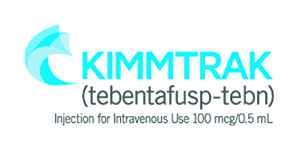 Immunocore Holdings’ Kimmtrak (tebentafusp-tebn) was the recipient of U.S. approval on Jan. 25 for the treatment of HLA-A*02:01-positive adult patients with unresectable or metastatic uveal melanoma (mUM).
Immunocore Holdings’ Kimmtrak (tebentafusp-tebn) was the recipient of U.S. approval on Jan. 25 for the treatment of HLA-A*02:01-positive adult patients with unresectable or metastatic uveal melanoma (mUM).
Kimmtrak is the first FDA-approved therapy for treating unresectable or mUM and the first T cell receptor (TCR) therapeutic to receive regulatory clearance. The product is also the first bispecific T cell engager to receive U.S. regulatory approval to treat a solid tumor.
The approval is based on results of the Phase III IMCgp100-202 study, which were published in the September 23, 2021 issue of the New England Journal of Medicine. In the randomized study, Kimmtrak demonstrated statistically and clinically meaningful overall survival benefit, hazard ratio of 0.51, with median OS of almost 22 months.
“Uveal melanoma is a devastating disease that has historically resulted in death within a year of metastasis for our patients,” stated John Kirkwood, M.D., director of the Melanoma Center at the UPMC Hillman Cancer Center. “The approval of Kimmtrak represents a major paradigm shift in the treatment of metastatic uveal melanoma, and for the first time offers hope to those with this aggressive form of cancer.”
Andrew Humphreys is contributing editor, Med Ad News and PharmaLive.com



